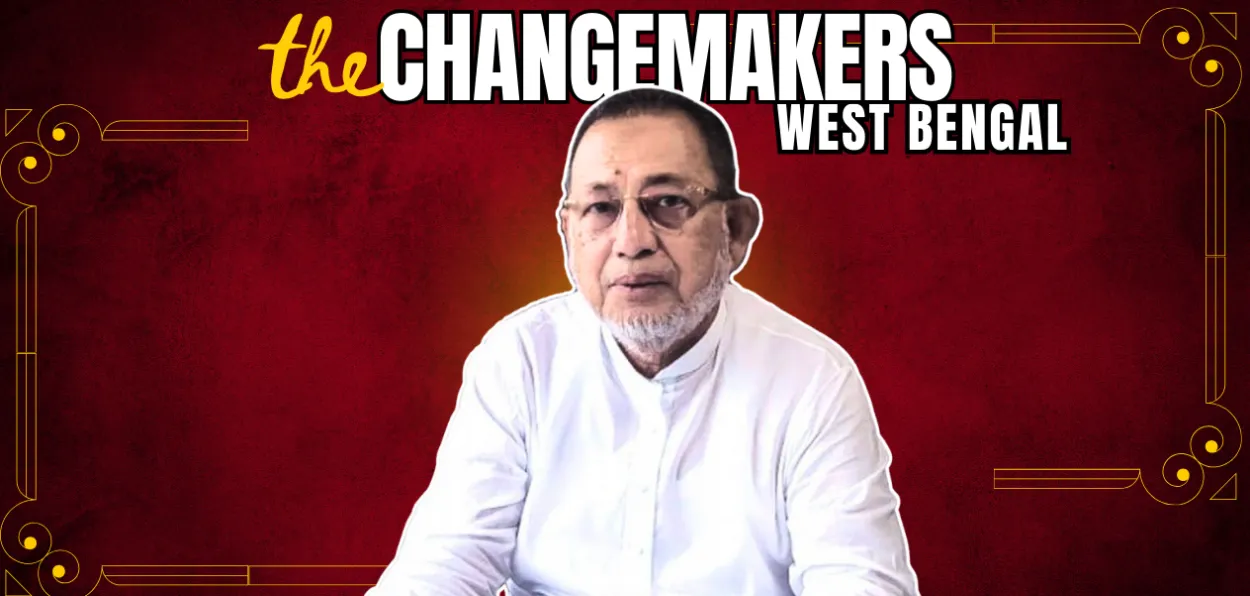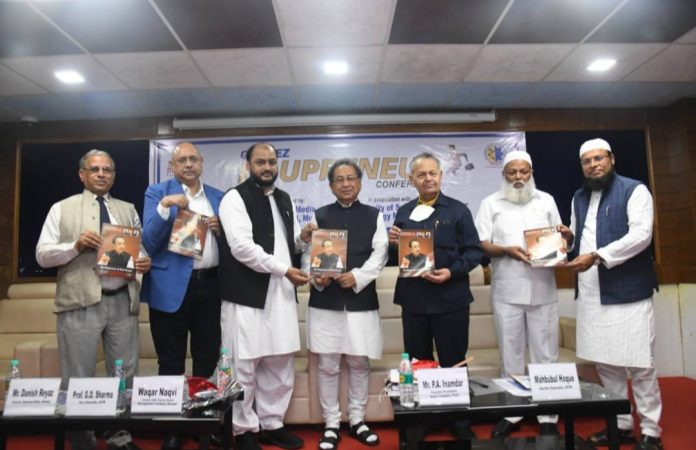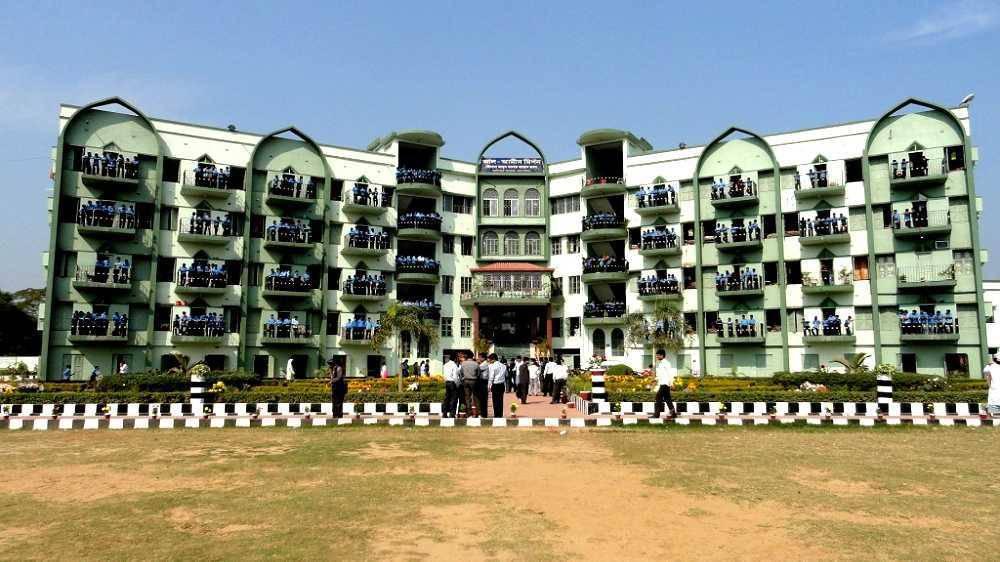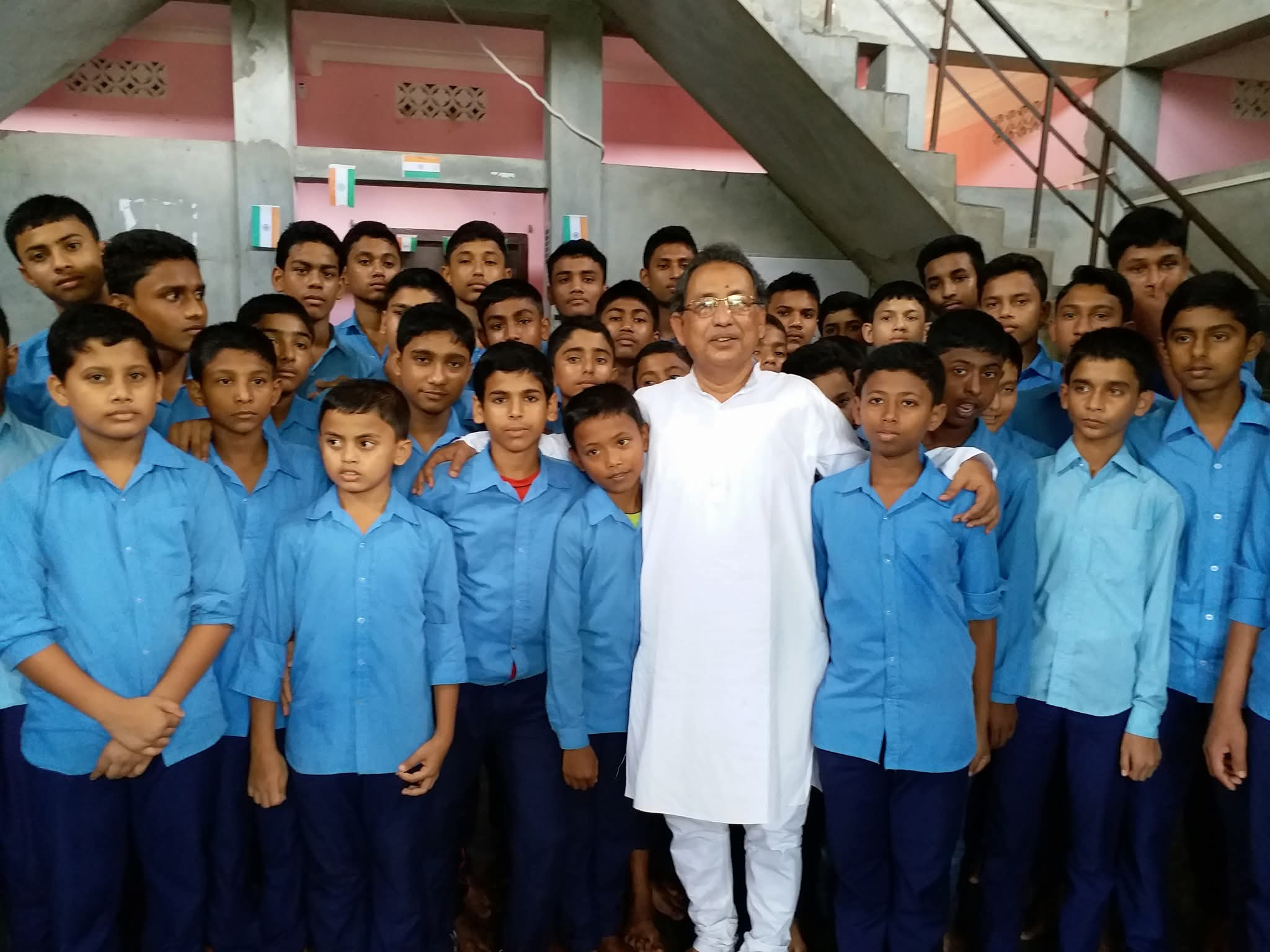
Sudip Sharma Choudhury/Guwahati
Muhammad Nurul Islam is not merely a reformer but a visionary whose tireless efforts have illuminated the path of educational and social awakening for Bengal’s Muslims.
His contribution in transforming a marginalized community through knowledge and empowerment remains unmatched.
Much of his social work was financed from his own earnings. At times, financial hardship slowed him down, but he never gave up. Nurul Islam worked relentlessly to spread education, establish schools, promote women’s learning, and encourage modernity while remaining rooted in faith.

Muhammad Nurul Islam unveiling a book
When he began his mission among Bengal’s deeply conservative Muslim society, any effort to introduce modern education faced strong resistance, and Nurul Islam’s attempt to include Western learning was no exception.
Speaking to Awaz – The Voice, Nurul Islam said: “When we began, we chose to serve Bengal’s most backward communities. Among them, orphans were the worst affected. For them, survival itself was a struggle, education an impossible dream. From the very beginning, Al-Ameen Mission made these children a priority. Over time, we learned how to turn dreams into reality.”
During British rule, Muslims were largely neglected by the administration, and the government offered little support to their initiatives. Yet Nurul Islam was not just an individual—he was a movement. His life proved that with determination, even the greatest challenges can be overcome.
 One of the Institutions of the Al Amin Mission
One of the Institutions of the Al Amin Mission
The year 1947 brought both freedom and Partition. While India gained independence, Partition left millions of Muslims in West Bengal trapped in a fractured, stagnant society. For decades, this community remained marginalized. But by the mid-1980s, winds of change began to stir—and at the center of this transformation was Al-Ameen Mission.
Founded nearly three decades ago in a remote part of West Bengal, the Mission was a bold step under Nurul Islam’s leadership. At a time when few dared to dream, he envisioned empowering a backward minority through education. The aim was not just literacy, but excellence—supporting bright yet underprivileged students and upholding fairness, equality, and transparency.
As Nurul Islam himself says: “Education is the only way to bring about social change.” Al-Ameen Mission was born from this belief, not simply as an institution, but as a movement.
 Muhammad Nurul Islam with students
Muhammad Nurul Islam with students
The journey was never easy. Economic strain, social barriers, and opposition often threatened its survival. Yet it endured. What began as a small seed in Khalatpur village has grown into a sprawling banyan tree.
Today, Al-Ameen Mission runs 67 institutions, including 41 residential campuses across West Bengal, Assam, and Jharkhand, serving more than 12,000 students. Over 20,000 have already graduated from its rigorous programs, many becoming doctors, engineers, teachers, and administrators who contribute to social progress.
Under Nurul Islam’s farsighted leadership, the initiative expanded to 72 institutions across five states, enrolling over 20,000 students. Its achievements are striking: the Mission has produced nearly 8,000 doctors and 5,250 engineers, most from poor and marginalized families.
.jpeg) Muhammad Nurul Islam in the field with students
Muhammad Nurul Islam in the field with students
The Mission’s core vision is simple yet profound: “To empower poor and backward minority communities through education, and foster social and economic progress.”
Nurul Islam’s educational journey began even earlier, in 1976, when, as a Class 10 student, he founded Khalatpur Junior High Madrasa. In 1984, he set up the Institute of Islamic Culture, later renamed Al-Ameen Mission in 1987. Fondly called the “Sir Syed of Bengal,” he started with just seven students in Khalatpur, Howrah.
His vision was to create a complete system of education blending modern learning with Islamic values. The results speak for themselves: Al-Ameen Mission has already produced 3,500 doctors (MBBS and BDS), 3,000 engineers, and countless teachers, researchers, and civil servants. In 2018 alone, 370 students cleared NEET, with 319 securing seats in government medical colleges.
ALSO READ: Golam Faruk and Geeti Hakim are transforming lives with love and compassion
Muhammad Nurul Islam’s extraordinary work has earned wide recognition. He received the Banga Bhushan Award (2015), the Begum Rokeya Award (2010), the Telegraph School Award for Excellence (2002 & 2009), and the Myshat Best Edupreneur Award in 2021.
